The Sketch Map Tool is an easy-to-use tool for participatory mapping through offline collection, digitization, and georeferencing of local data. The low-tech solution simplifies the gathering and analysis of spatial knowledge and perceptions using pens and paper maps, the so-called Sketch Maps. As an open-source web application, the tool supports the creation, use, and subsequent digitization and analysis of paper-based maps, integrating OpenStreetMap, satellite data (ESRI world imagery) and OpenAerialMap (OAM).
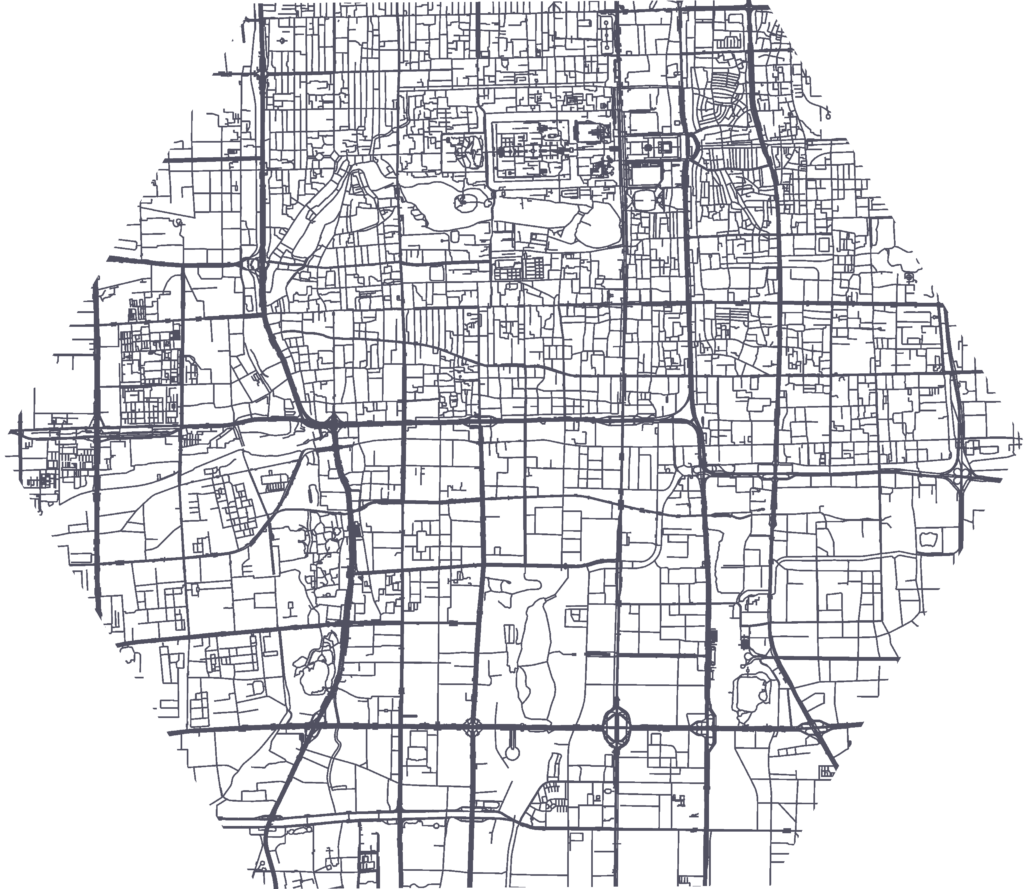
Define your area of interest and your base map, look at the OSM Map Quality check and export the map as PDF.
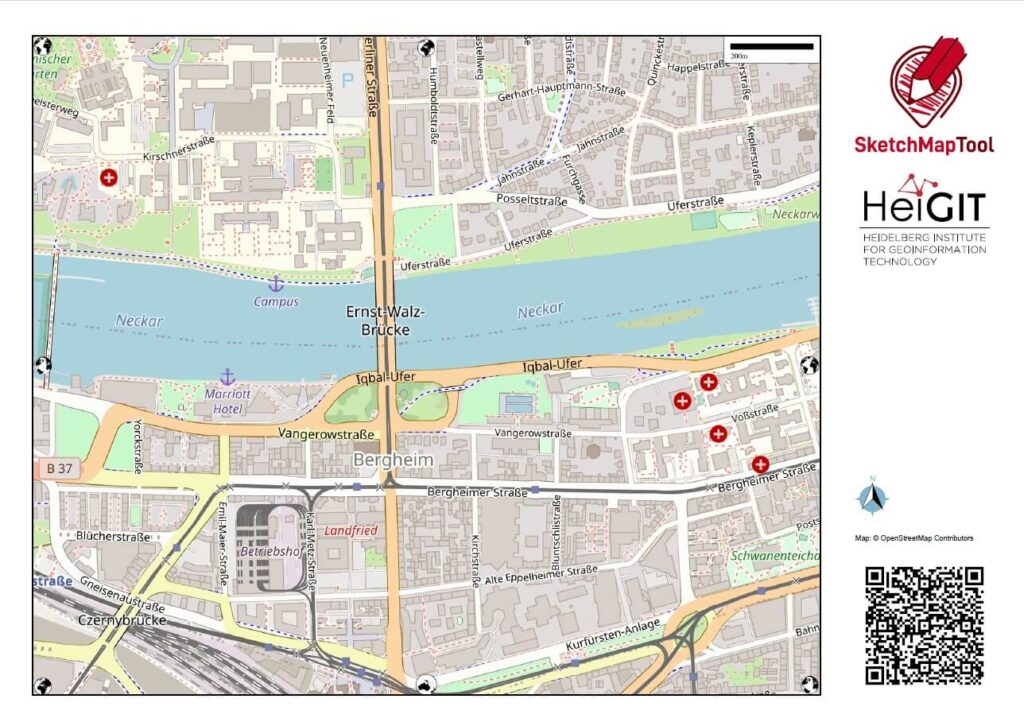
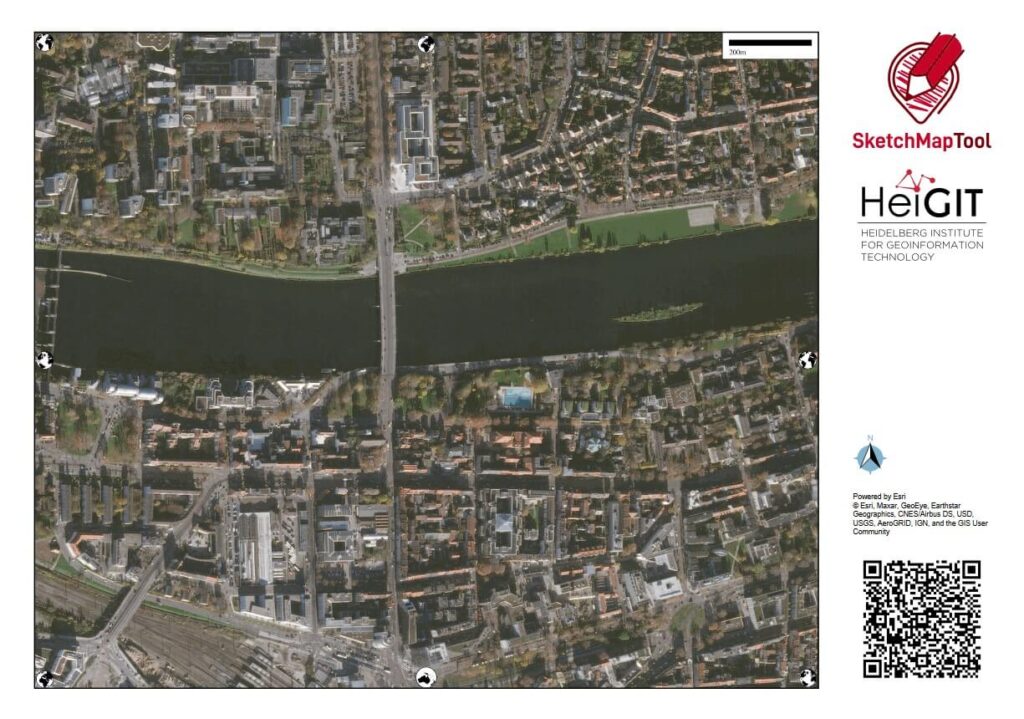
Data collection with local communities in- and outdoor with pens on paper Sketch Maps.
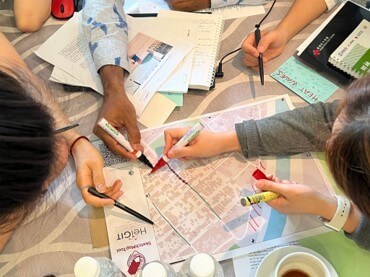
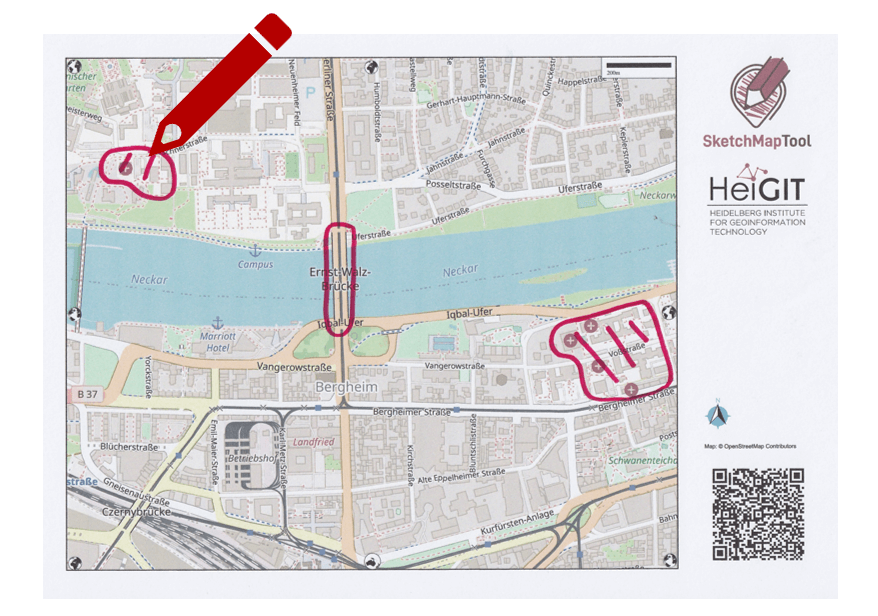
Scan or photograph your marked Sketch Maps, upload the images to Sketch Map Tool and download collected markings as geodata. You will need a GIS to open it, we recommend QGIS or umap.
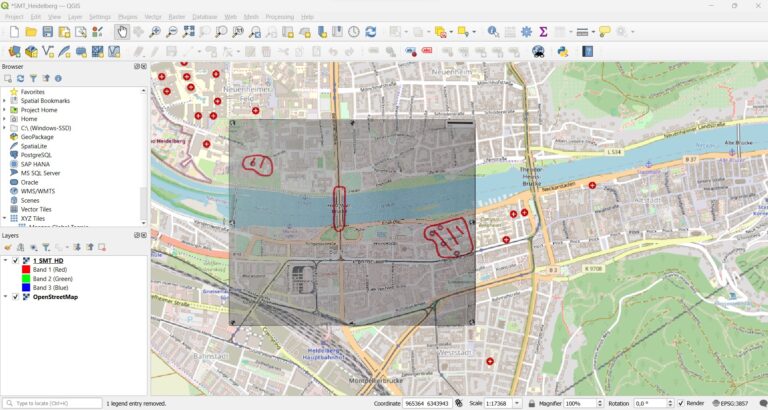
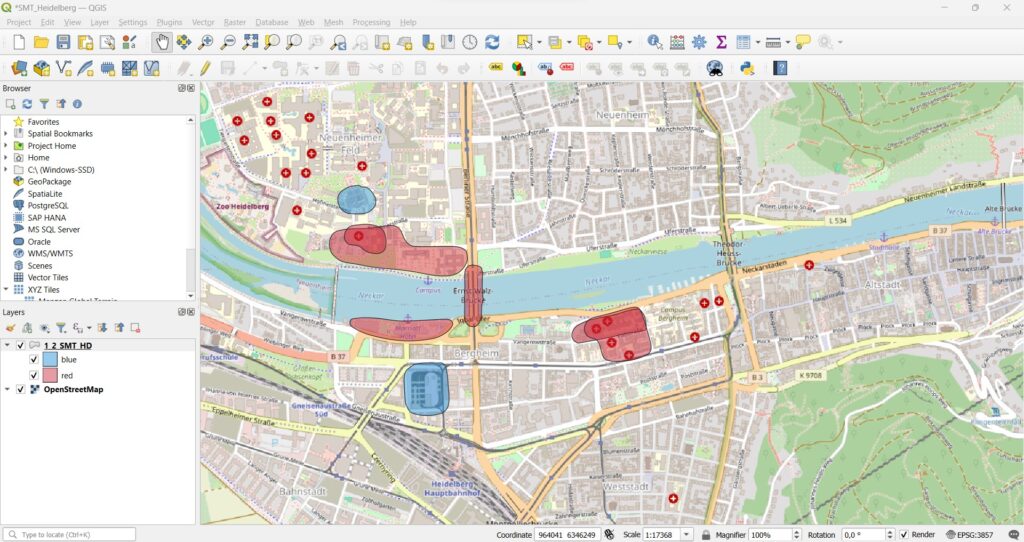
Participatory Mapping: Facilitates community involvement with a focus on marginalized groups by providing a mapping option with basic tools like paper and pens.
Customized maps: Supports various paper sizes and offers two base map options—OpenStreetMap and satellite imagery—to accommodate diverse mapping projects.
Offline Functionality: Designed for use in low-tech environments, allowing analogue mapping without digital devices.
Automatic Digitization: Uses AI and computer vision to digitize and georeference markings on paper maps.
Multi-Language Support: Available in English, German, French, and Spanish, broadening its accessibility.
Training and Exercises: Offers a help page and FAQ section with step-by-step introductions and recommendations to support users in their mapping activities.
Mapping local knowledge about disasters, including past experiences, risk perceptions, and vulnerabilities.
Use the tool to visualize and deliberate on community aspirations, enhancing long-term planning efforts.
Helps map areas of environmental degradation and inadequate infrastructure to better understand and address local risks.
The Sketch Map Tool is based on research into flood risk perception and participatory mapping with Field Papers(Field Papers) (Klonner, Usón, et al., 2021). These studies highlight the need to combine both analogue and digital mapping techniques to bridge the gaps between stakeholders and streamline data collection and analysis. The Sketch Map Tool prototype was developed as a part of the Waterproofing Data project (Klonner, Hartmann, et al., 2021; Porto De Albuquerque, 2023; Klonner et al., in preparation), funded by the Federal Ministry of Education and Research.
Developed in close collaboration between HeiGIT and the GIScience Research Group at Heidelberg University, the prototype was upgraded with an improved interface and computer vision-based colour detection. Since then, it has been applied and tested within humanitarian and research case studies in urban and rural areas in the Global North and South.
Klonner et al. (2018) & NEOHAZ project. These case studies were based on Field Papers.
Klonner et al. (2021) & NEOHAZ project. These case studies were based on Field Papers.
First analysis of OSM-Data
Generation of different paper formats & geo-referencing
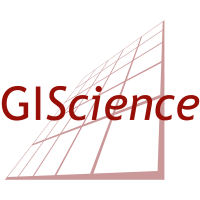
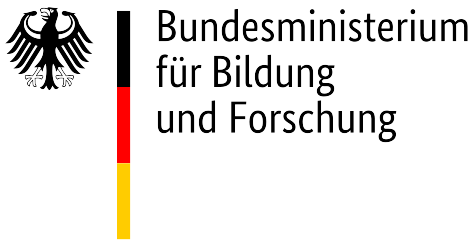
Experiments and the first implementation of colour-detection

Usability evaluation of the Sketch Map Tool in the EVCA context in a case study in Colombia with expert interviews and surveys

First public online version of the Sketch Map Tool, with an improved user interface

Improved marking detection
Integration of satellite images
Improved training and help page
Available now also in German, French and Spanish

Further improvement of the marketing detection with additional training data and redefined AI-models
Connecting the quality analysis of the OSM base maps directly with the Ohsome-dashboard
Integration of case studies and first user statistics

Supported by the German Red Cross and funded by the German Federal Foreign Office through the Globalprojekt II, the tool has been enhanced and expanded for broader use within the Red Cross Red Crescent Movement and similar organizations.
The Sketch Map Tool is now part of the HeiGIT tools, contributing to the reduction of disaster impacts through innovative humanitarian approaches.

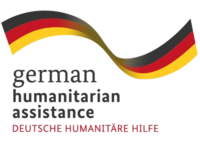
Demonstrates the tool’s adaptability in various contexts, showcasing its role in integrating local knowledge into planning.
Used in a joint effort between the Honduran Red Cross and the municipal government to update the municipal response plan and develop an annex focused on anticipatory actions.
The Sketch Map Tool was strategically used within Colombia’s National…
Last week, the “Global Digital Health” Research Alumni Project Week…
The Silver Ways project aims to make it easier for…
The Sketch Map Tool was used in Cartagena, Chile, to…